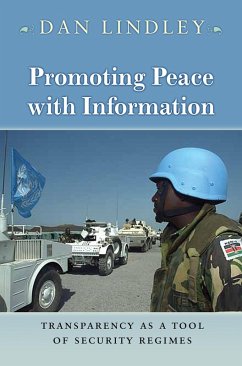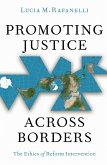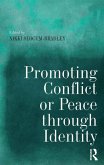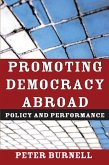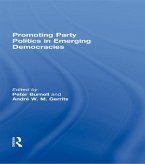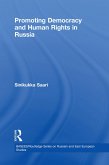It is normally assumed that international security regimes such as the United Nations can reduce the risk of war by increasing transparency among adversarial nations. The more adversaries understand each other's intentions and capabilities, the thinking goes, the less likely they are to be led to war by miscalculations and unwarranted fears. But how is transparency provided, how does it actually work, and how effective is it in preserving or restoring peace? In Promoting Peace with Information, Dan Lindley provides the first scholarly answer to these important questions.
Lindley rigorously examines a wide range of cases, including U.N. peacekeeping operations in Cyprus, the Golan Heights, Namibia, and Cambodia; arms-control agreements, including the Nuclear Non-Proliferation Treaty; and the historical example of the Concert of Europe, which sought to keep the peace following the defeat of Napoleon in 1815. Making nuanced arguments based on extensive use of primary sources, interviews, and field research, Lindley shows when transparency succeeds in promoting peace, and when it fails. His analysis reveals, for example, that it is surprisingly hard for U.N. buffer-zone monitors to increase transparency, yet U.N. nation-building missions have creatively used transparency to refute harmful rumors and foster democracy.
For scholars, Promoting Peace with Information is a major advance into the relatively uncharted intersection of institutionalism and security studies. For policymakers, its findings will lead to wiser peacekeeping, public diplomacy, and nation building.
Lindley rigorously examines a wide range of cases, including U.N. peacekeeping operations in Cyprus, the Golan Heights, Namibia, and Cambodia; arms-control agreements, including the Nuclear Non-Proliferation Treaty; and the historical example of the Concert of Europe, which sought to keep the peace following the defeat of Napoleon in 1815. Making nuanced arguments based on extensive use of primary sources, interviews, and field research, Lindley shows when transparency succeeds in promoting peace, and when it fails. His analysis reveals, for example, that it is surprisingly hard for U.N. buffer-zone monitors to increase transparency, yet U.N. nation-building missions have creatively used transparency to refute harmful rumors and foster democracy.
For scholars, Promoting Peace with Information is a major advance into the relatively uncharted intersection of institutionalism and security studies. For policymakers, its findings will lead to wiser peacekeeping, public diplomacy, and nation building.
Dieser Download kann aus rechtlichen Gründen nur mit Rechnungsadresse in A, D ausgeliefert werden.

